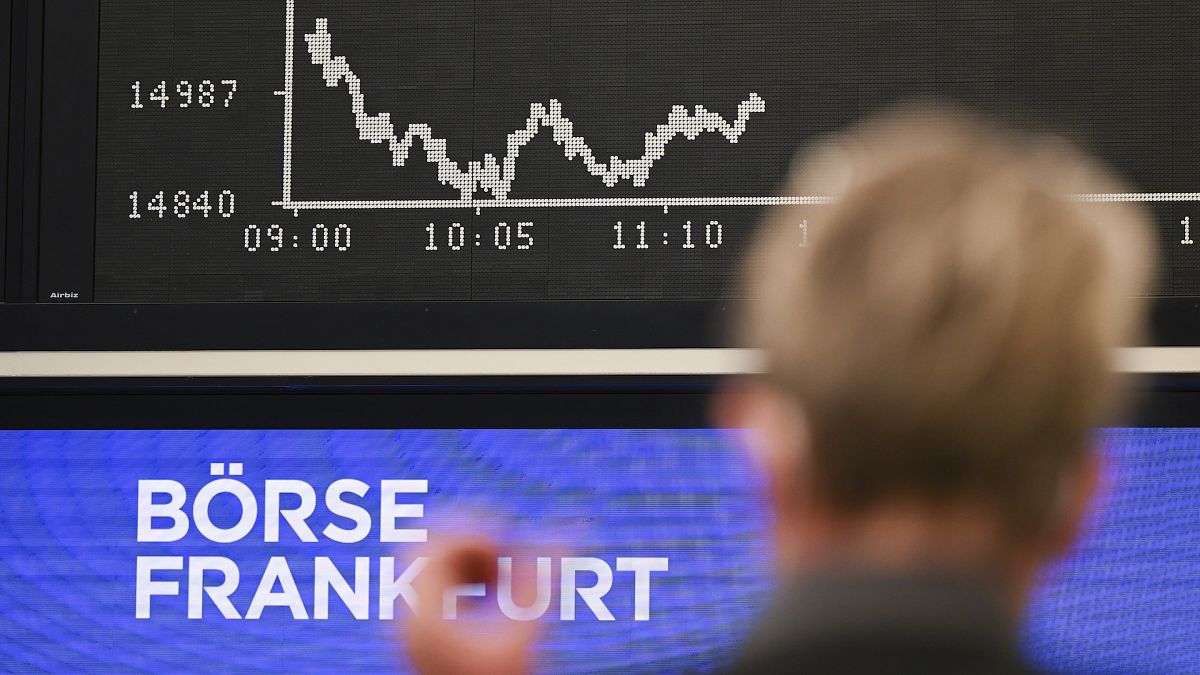Germany’s stock market has continued to reach new highs, buoyed by the easing monetary policies of global central banks. However, political and economic challenges may limit further gains.
Germany, the world’s third-largest economy, has been grappling with significant economic and political uncertainties, which could exert pressure on its record-high stock markets. The DAX, Germany’s stock market benchmark, reached an all-time high before sharply retreating on Friday, just ahead of a key state election on Sunday.
Despite this, stock futures indicate a positive open across Europe, fuelled by global optimism following the Federal Reserve’s jumbo rate cut last week. However, despite the near-term rally, Germany’s stock markets are likely to face ongoing challenges.
Political uncertainty
Over the weekend, Chancellor Olaf Scholz’s Social Democratic Party (SPD) narrowly fended off the far-right Alternative for Germany (AfD) in Brandenburg, with a 30.9% to 29.2% result, according to the state electoral commissioner.
However, the close contest indicates that Germany’s ruling party is losing public support, especially following the AfD’s historic victories against Scholz’s three-party coalition in two eastern states last week.
The AfD claimed first place in Thuringia and came a close second in Saxony, while the newly established far-left party, the Alliance Sahra Wagenknecht (BSW), finished third in both regions.
The BSW, a pro-Russian populist party, also gained 12% of the vote in Brandenburg, positioning itself as a crucial player in the region’s political landscape, just a year ahead of Germany’s general election.
Both the AfD and BSW share common positions on key issues: they are anti-immigration and pro-Russia, calling for an end to Germany’s support for Ukraine and the resumption of Russian gas imports.
Germany, situated at the centre of geopolitical tensions between East and West, faces growing political instability, which is likely to dampen business confidence and make the country less attractive to foreign investment.
Berlin halts share sales in Commerzbank
Germany’s Finance Agency announced on Friday that the government “will not, until further notice, sell any additional shares” in Commerzbank, aiming to fend off a potential takeover by Italy’s UniCredit.
In its statement, the agency emphasised that the bank’s strategy is “geared towards independence”.
This news is expected to trigger a selloff in shares of Commerzbank, Germany’s second-largest bank, when markets open.
Last week, Commerzbank shares soared to a 12-year high after reports emerged that UniCredit had sought approval from the European Central Bank to acquire up to 30% of the bank.
UniCredit had already managed to purchase a 9% stake, becoming the second-largest shareholder, behind the German government’s 12% holding.
Berlin’s defensive stance highlights the persistent regulatory and political barriers within the European Union, hampering efforts to unify its banking sector.
This fragmentation continues to undermine the bloc’s ability to compete effectively on the global stage against rivals such as the US and China.
Germany’s iconic industry faces decline
Germany’s automotive industry is facing a series of challenges, including surging inflation, intensifying competition from China, weak global demand, and high energy transition costs.
The manufacturing sector has been in recession for the past two years, exacerbated by the Ukraine war.
Volkswagen has been in discussions with unions over the potential closure of its German factory, with plans to cut up to 30,000 jobs.
This decision comes amid falling sales and rising expenses, which contributed to a 3.8% drop in revenue during the second quarter, with sales in China down by 20%.
In September, BMW lowered its full-year forecast after a braking system malfunction led to a recall of over 1.5 million vehicles.
Meanwhile, last Friday, Mercedes-Benz also slashed its annual outlook due to weak demand, particularly in China.
The struggles faced by Germany’s flagship automakers – Volkswagen, BMW, and Mercedes-Benz – highlight the ongoing decline in the country’s core industry, casting a shadow over its economic prospects.
The Euro Stoxx 600 Automobiles & Parts index has fallen 11%, while the broader Pan-European Stoxx 600 index has risen by 7.5% year-to-date.

